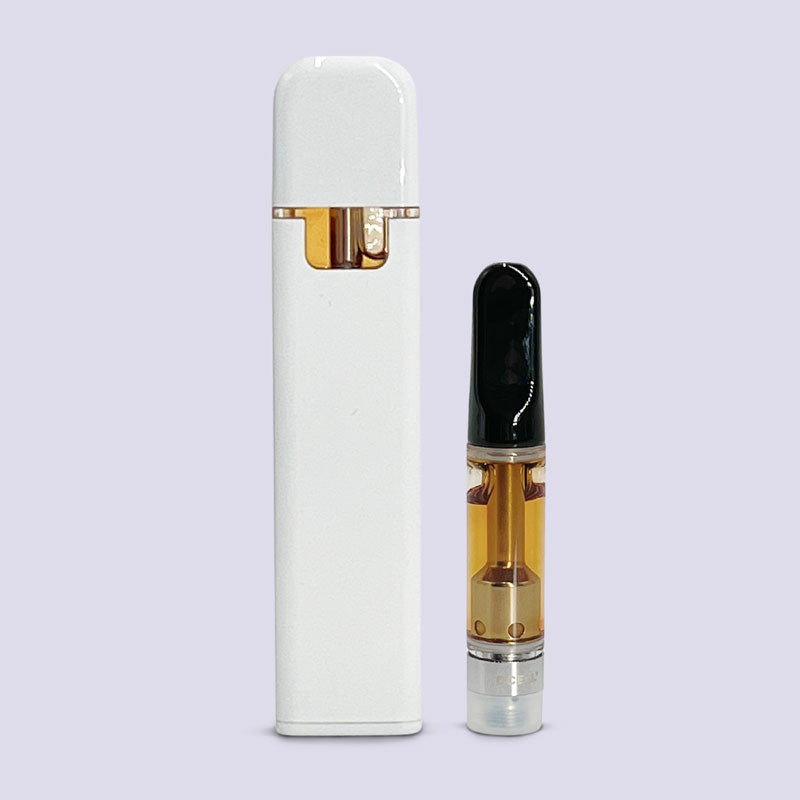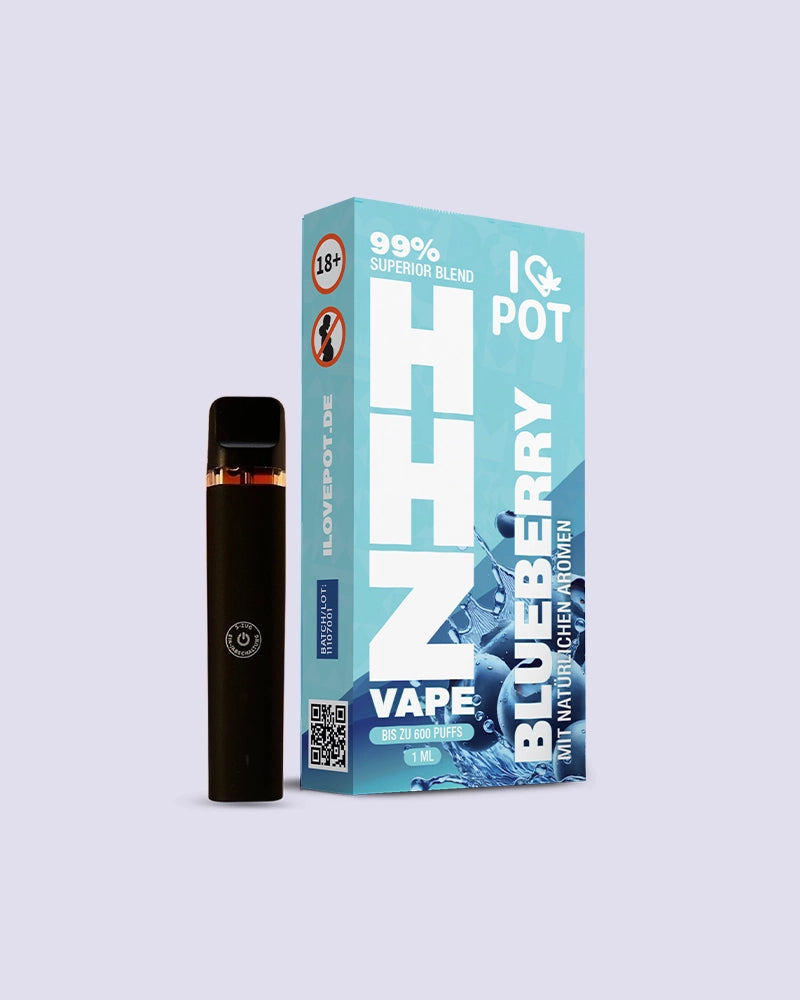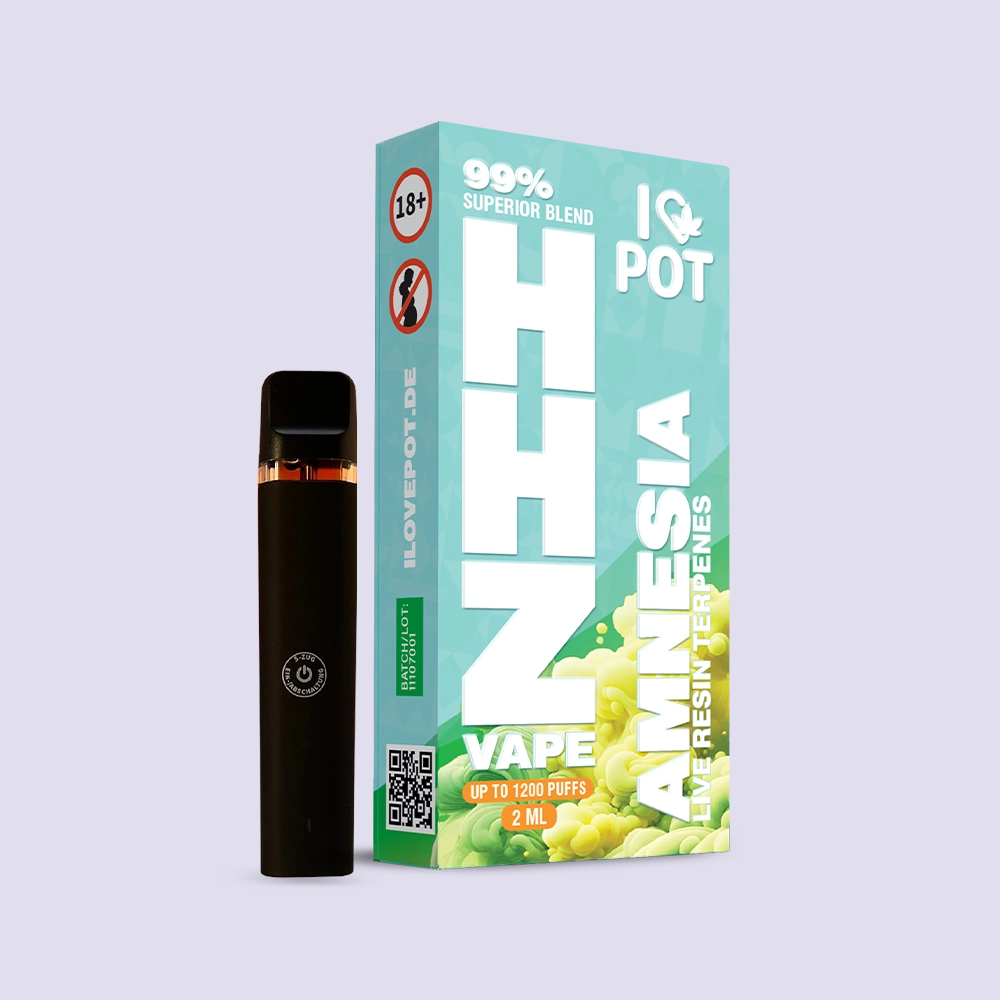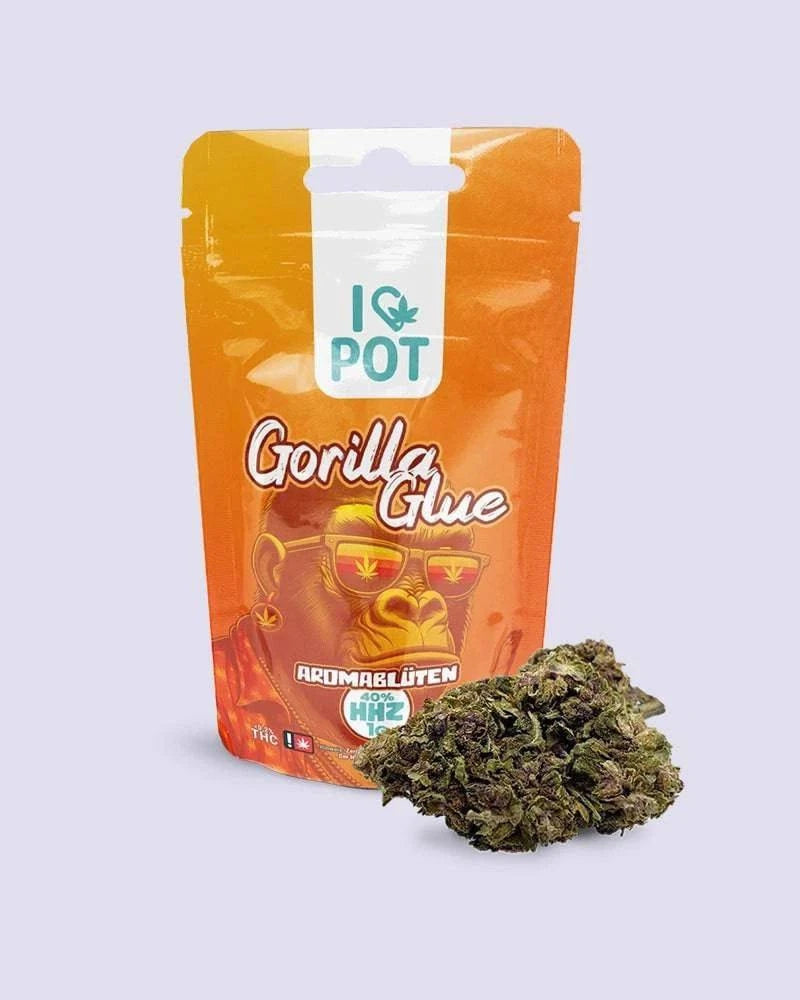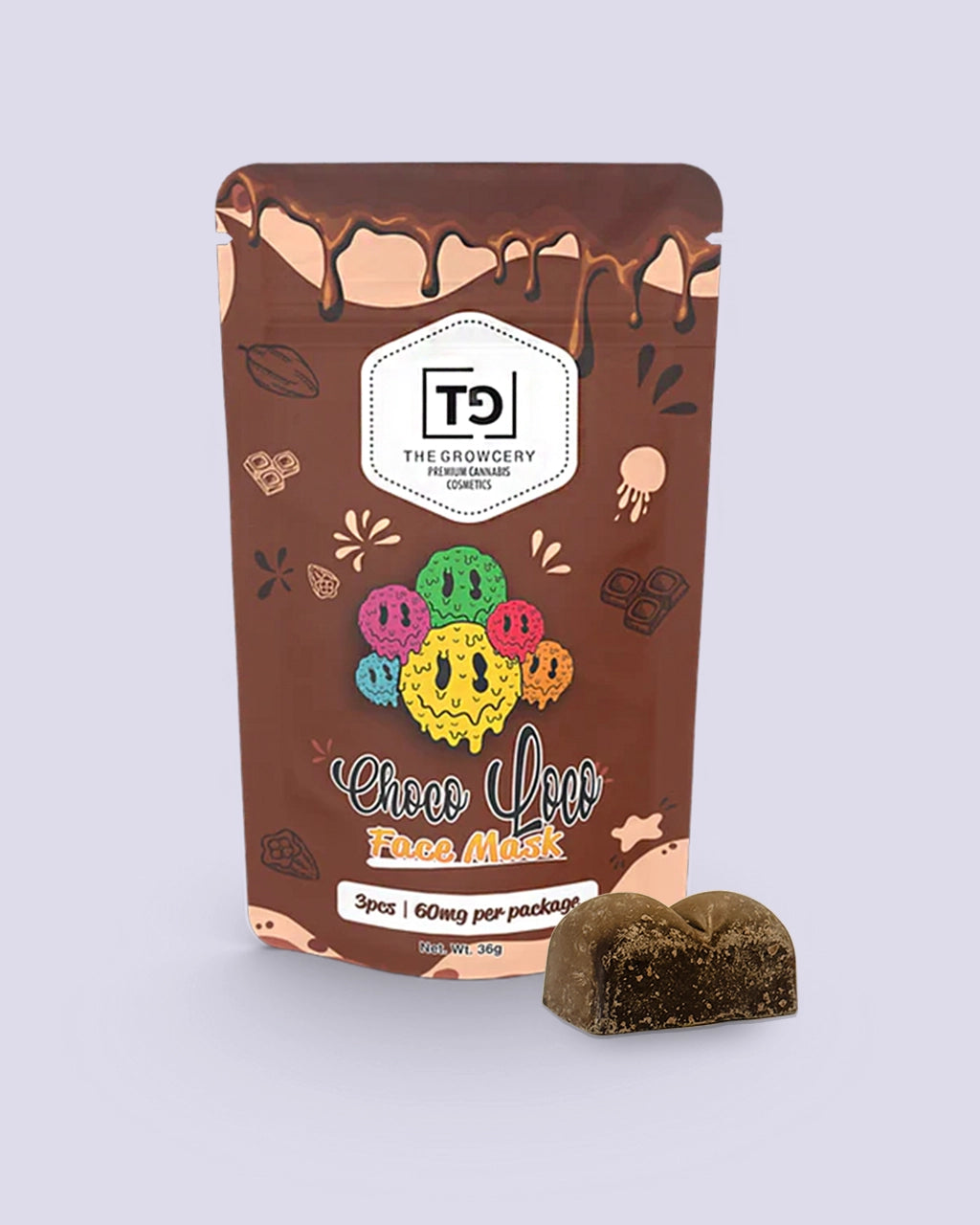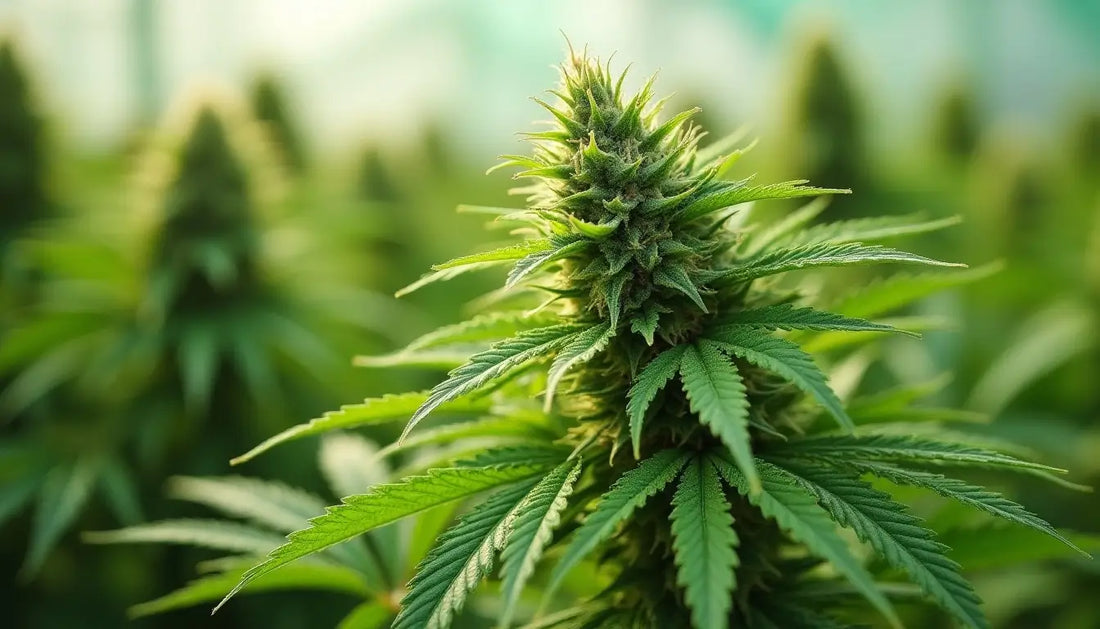
THC-A (THCA) – what it is, how it works and why it is important
THC-A, also known as tetrahydrocannabinolic acid , is the substance from which the familiar THC is formed when heated. In its natural form, THC-A is non-psychoactive—it neither alters perception nor causes a "high." Only when exposed to heat, such as through vaporization or smoking, does THC-A transform into active THC.
The cannabinoid occurs naturally in fresh cannabis flowers and forms the basis for many of the plant's later compounds. Anyone who wants to understand how cannabis actually works will sooner or later end up with THC-A—the silent starting point without which there would be no THC.
What is THC-A?
The term THC-A, sometimes spelled THCA, is increasingly being heard. But what does it actually mean?
THC-A is the natural precursor to THC, the substance that gives cannabis its well-known effects. In the plant, it initially exists in its acid form and is completely harmless—it does not produce intoxication.
Only when THC-A is heated, for example, through vaporization, smoking, or baking, does it transform into THC. This process is called decarboxylation. The substance loses a molecule and thus becomes active. Without THC-A, there would be no THC—it is the starting point for everything associated with cannabis.
How is THC-A produced?
THC-A is produced naturally in the cannabis plant as it grows and matures.
Many small biochemical processes take place inside the plant, producing various cannabinoids - including THC-A.
It all begins with a substance called CBGA, often referred to as the "mother of all cannabinoids." Depending on the strain, temperature, and light conditions, the plant uses this substance to form different compounds—including CBD, CBG, and THC-A.
You can imagine this as a natural chain of development:
- At the beginning there is CBGA as the starting material.
- Enzymes in the plant convert CBGA into THC-A.
- As long as the flowers remain raw, the THC-A is also preserved - without any psychoactive effects.
Only heat transforms the molecule, transforming THC-A into active THC. This is why fresh, untreated flowers contain almost exclusively THC-A, while in heated or smoked products, most of it has already been converted to THC.
THC-A vs. THC - the difference
Even though THC-A and THC differ by only a single molecule, the effect is quite different. THC-A is not psychoactive in its original form, while THC is responsible for the typical cannabis effect. The following overview shows the most important differences:
| feature | THC-A | THC |
|---|---|---|
| Chemical form | Acid form (with additional carboxyl group) | activated form after decarboxylation |
| Effect | non-psychoactive | psychoactive (acts on the endocannabinoid system) |
| Happen | in fresh or untreated flowers | in heated, dried or smoked products |
| activation | only becomes THC when heated | already active |
| use | often in research, extracts or cold-pressed oils | in medical and recreational cannabis |
In short: THC-A is the calm, untreated counterpart to THC. Only when exposed to heat does it become active and produce its familiar effects. Therefore, the experience depends heavily on how cannabis is consumed or processed – raw, it remains mild, while heated reveals its full effect.
How is THC-A used?
How THC-A is used depends largely on whether you want to preserve it in its original form or activate it.
Since THC-A only becomes THC when heated, it can be used in different ways depending on the desired result.
Typical forms in which THC-A occurs:
- Flowers: Fresh or gently dried cannabis flowers usually still contain a lot of THC-A. It only converts to THC when smoked or vaporized.
- Vapes: Special THC-A vapes are designed to enable conversion to THC directly upon heating.
- Hash or extracts: Here, THC-A is often present in concentrated form. Depending on the application, it remains raw or is activated by heating.
- Oils and tinctures: Cold-pressed or unprocessed oils also contain THC-A – they are non-intoxicating but are often valued for their natural cannabinoid profile.
As you can see, temperature plays a crucial role:
If THC-A remains raw, it has no psychoactive effects. When heated, it transforms into THC—and this determines whether the effects are mild or strong.
What are the effects of THC-A?
Not as much is known about the effects of THC-A as about THC itself.
Since THC-A is not psychoactive in its original form, it does not produce a classic "high."
Nevertheless, the cannabinoid has been studied more intensively in recent years because many suspect that it may have its own, more subtle effects on the body.
Some possible properties discussed in studies and reports:
- light relaxation without feeling intoxicated
- possible anti-inflammatory effect
- Support for muscle tension
- antioxidant properties, thus a potential cell protection
These are all initial observations – much of it is not yet scientifically proven.
THC-A is therefore considered an interesting but still little-researched cannabinoid.
Many people who consume THC-A in its raw form report primarily a clear, calm body feeling - without the strong mental effects that THC usually triggers.
Conclusion
THC-A is something like the quiet origin of THC.
It occurs naturally in the cannabis plant and remains non-psychoactive until heated.
This makes it exciting for many who are interested in the different forms and processes surrounding cannabis.
Even though research on THC-A is still in its early stages, the findings so far show:
This cannabinoid has its own profile and is significantly different from the classic THC experience.
Whether as a component of fresh flowers or in concentrated form, THC-A reminds us that cannabis is much more than just the well-known active ingredient THC.
FAQ about THC-A
How is THC-A optimally activated (temperature & method)? +
THC-A is converted into THC through heat (decarboxylation). Many people prefer moderate temperatures when vaporizing. Too much heat can impair the aroma and terpenes; too little heat doesn't fully activate the aroma.
How do I recognize good THC-A products (quality check)? +
Important information on quality:
- current laboratory analysis (ingredients, residues, terpene profile)
- clear declaration of content and batch number
- clean aroma, no solvent notes
- transparent origin & processing
How do I store THC-A correctly (shelf life & aroma)? +
Cool, dry, dark, and airtight. Ideally, store in glass with a Boveda or Integra pack. Heat, light, and oxygen accelerate degradation and alter the flavor.
What is the difference between THC-A flowers, hash, and vapes? +
Flowers are natural, hash is more concentrated and has a more intense flavor, and vapes are easy to dose and discreet. The activation occurs upon heating.
How do I find my personal starting dose? +
Low & slow: Start with a few short strokes and take breaks. Wait for the effect first, then gradually increase. Every body reacts differently.
Does the terpene profile play a role in THC-A? +
Yes. Terpenes influence the aroma and can shape the subjective experience—for example, whether the effect is described as clear, earthy, or fruity.
Is THC-A detectable in a drug test? +
Drug tests usually target THC metabolites. After THC-A has been activated to THC, a test can be positive. Without activation, the data are inconsistent.
Traveling with THC-A – what to look out for? +
Regulations vary greatly by country. Always check local regulations before traveling and package products securely. If unsure, it's best to avoid them.
Is THC-A different from HHC, HHZ, or THCP? +
Yes. THC-A is the precursor to THC and only becomes psychoactive when exposed to heat. HHC, HHZ , and THCP are independent cannabinoids with different chemical structures and effects.
Are there any possible side effects from heated THC-A? +
After activation to THC, typical effects such as dry mouth or fatigue can occur. Reactions vary from person to person – approach slowly and take breaks.
